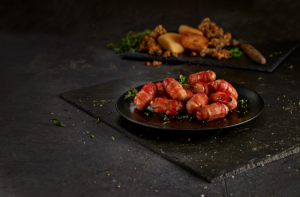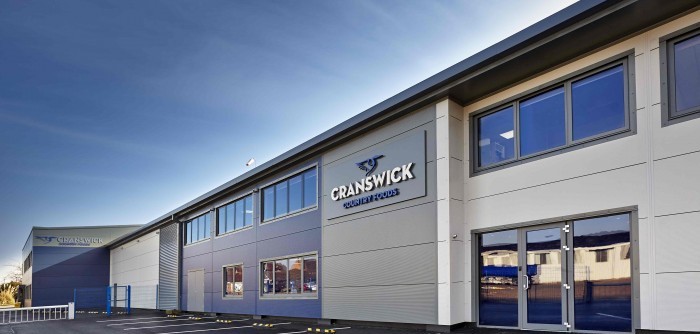Cranswick’s acquisition of two pig herds during the first half of the current financial year, including the £32 million purchase of Elsham Pigs, has taken its self-sufficiency in pigs beyond 50%.
The Hull-based integrated pig and poultry company grew its revenue by 12.3% year-on-year to just over £1.25 billion in the six months to September 23. Adjusted profit before tax for the period, at £81.6m, was 23.6% up year-on-year.
Cranswick said this ‘strong’ first half of the year reflected ‘effective inflation recovery and resilient volume growth across all four core UK food categories’ – fresh pork, gourmet, convenience and poultry.
Fresh Pork revenue was 12.2% above the prior period and represented just over a quarter of group revenue. This reflected the pass through of higher pig prices and strong volume growth in UK food, offset by lower export revenue with both pricing and demand from China remaining subdued.

The Group has also seen a ‘positive contribution from rapidly expanding pig farming operations’, as well as robust returns from effective deployment of capital and tight cost control lifted, which help lift the adjusted operating margin from 6.1% to 6.8%.
Cranswick’s latest financial reveals that it purchased Elsham Linc, comprising 8,000 sows producing 3,200 finished pigs each week plus a feed mill, for £31.7m, significantly increasing the size of its Red Tractor assured indoor pig herd.
During the period, it also acquired a second pig herd as part of a wider agreement to lease and operate, on a long-term basis, a fully integrated pig and arable farming enterprise in North Yorkshire.
“With the addition of these two new herds our self-sufficiency in UK pigs is now over 50%. We will continue to invest in and, as necessary, expand our pig herd to ensure supply of the appropriate quantity and quality of pigs to meet our customers’ needs,” the company said.
“We will continue to invest in our sustainable pig farming operations to guarantee supply, support full farm-to-fork traceability and maintain the highest animal welfare standards.”
In addition, the company is ‘investing at pace’ across its three fresh pork primary processing operations with ‘significant committed investment to increase capacity and drive further operational efficiencies’ as it looks to service its rapidly growing value-added pork business.
This investment programme includes a £62m multi-phased redevelopment of the Hull primary processing site, which will add substantial capacity, drive further efficiency improvements and add onsite cold storage capability. A £23m ‘fit out’ of a new houmous facility at Worsley, Manchester underway.
During the six-month period, Cranswick invested nearly £40m across its asset base, taking its total investment since 2016 to £600m.
Strong start

Adam Couch, Cranswick’s chief executive officer said: “Our strong start to the year continued through the second quarter.
“Our relentless focus on quality, service, innovation, and managing our cost base through this extremely challenging inflationary cycle, allied to delivering exceptional customer service, has underpinned these results.
“Momentum has continued through the start of the third quarter as our customers and the UK consumer continue to appreciate the affordability, value for money and versatility of our core pork and poultry categories.
“Our continued positive progress is made possible by the substantial ongoing investment in our asset base, expansion of our pig farming operations and the quality and capability of our colleagues across the business.
“I want to thank, once again, our colleagues and all our stakeholders for their continued support and commitment as we build towards what promises to be another extremely busy festive period.
“Notwithstanding the many challenges that we, our industry and the wider economy continue to experience, I am confident that the strengths of our business, which include its diverse and long-standing customer base, breadth and quality of products and channels, robust financial position and industry leading infrastructure, will support the further development of Cranswick in the current financial year and over the longer term.”




